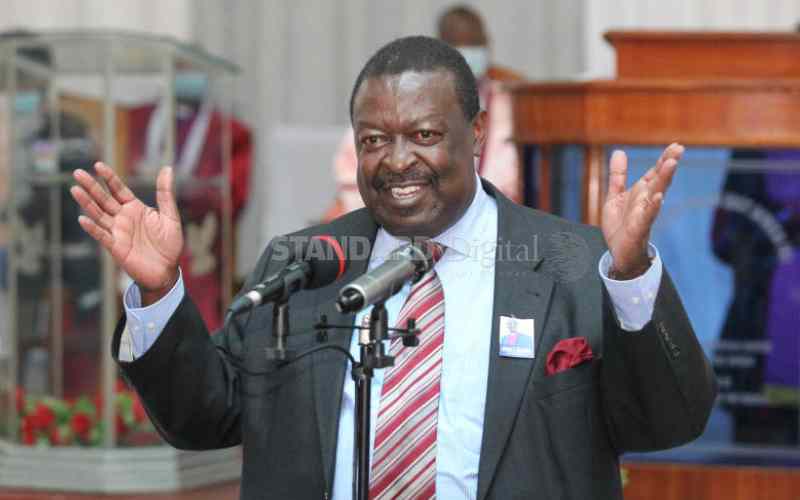
Wycliffe Musalia Mudavadi is credited with saving the country from runaway inflation and resumption of aid when he became Minister for Finance after the 1992 multiparty elections. Mudavadi was the seventh and last Vice President of Kenya – appointed three months before the 2002 General Election after Vice President George Saitoti left KANU for the Opposition.
Within KANU the soft-spoken politician came across as more refined and youthful than the older members of the party. He preferred to concentrate on his Cabinet docket and rarely held public rallies like his party colleagues.